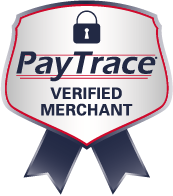When businesses work to improve their local search results, they tend to get locked on the idea that most local searchers begin and end with the big three search engines.
Because of this belief, marketers spend most of their time solely focused on paying for and improving their website’s placement in Yahoo, Bing, and of course, Google.
In order to really profit from those buyers who go online to find businesses in their own city or even in their local neighborhood, it’s vital to understand how those buyers are actually searching online. The reality is that the definition of search engines should be  expanded to include more than just the big three.
expanded to include more than just the big three.
Where Do Local Searches Originate From?
For example, a survey published on Search Engine Land revealed that listings from the major search engines only make up a portion of what most marketers think of as “local search.” Some people may find these survey results surprising:
- Only about 36 percent of searches for local businesses began with a major search engine.
- An additional 13 percent began with a visit to a niche website on a specific topic about the product, service, or industry they were looking for.
- Customer reviews and directories each accounted for another seven percent of searches
- Promotions or coupons accounted for another six percent of searches
- Additional sites included digital maps, phone apps, and other types of content that mentioned the business.
Which Kinds of Shoppers Rely On Local Search the Least?
The survey did cover a broad range of services and products. Your type of industry may impact results to some degree, but what really stood out was the way that customers and prospective clients searched differently, depending on their familiarity with the type of business they were searching for.
For example, almost half of experienced hotel shoppers said that they tended to visit an industry-specific travel sites for information about local hotels, such as Trip Adviser, Hotels.com, etc.
In other words, casual travelers might start searching on Google or Bing first; but seasoned travelers will already have their favorite resources bookmarked.
Since experienced travelers consume travel services more frequently than casual travelers, it only makes sense for travel-related companies to target these travel-specific sites as much or more than the big three search engines.
In any case, placing a portion of your ad listings on review sites, local industry directories, and a variety of other platforms will serve to increase your visibility. In turn, this increased visibility is likely to help your search rankings on the big search engines.
By understanding how buyers research companies like yours, you can see better results from many different aspects of your digital marketing.
Let DBC Digital Help Your Local Customers Find You
At DBC Digital, our marketing team has helped countless businesses reach out to local shoppers online. Let us help you analyze your current internet presence and expand your reach in the places where your customers are most likely to look for the products or services that you offer. Contact us to discuss your unique company and location.
*Photo credit: Copyright: <a href=’https://www.123rf.com/profile_alexmillos’>alexmillos / 123RF Stock Photo</a>



